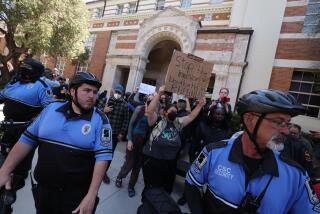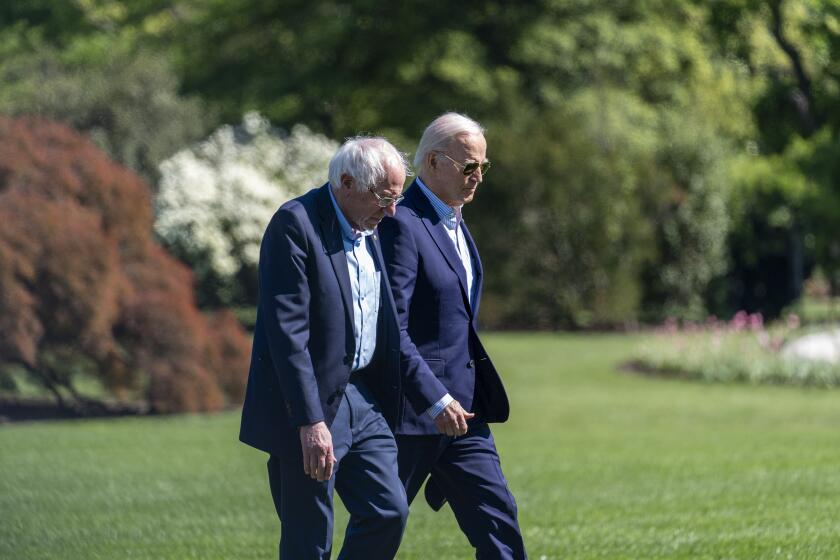The Risky Business of Modern War
American armed forces have now been at the so-called war on terrorism for two full years. The White House, defending the increasingly controversial military operations in Iraq and Afghanistan, released a progress report Sept. 10 declaring that the United States “has dismantled the repressive Taliban, denied [Al Qaeda] a safe haven in Afghanistan, and defeated Saddam Hussein’s regime.”
Dismantled, denied and defeated. Those are strong, even definitive, words. Yet the American military remains as fully engaged as ever in Iraq and Afghanistan, and Congress is being asked to add $87 billion to the Pentagon budget to continue the fight.
As the presidential election contest heats up, objective analysis of these military operations is likely to be swamped by waves of ideology and political spin.
So, how are we doing and what have we learned in two years of intense activity by almost the full spectrum of U.S. military and intelligence resources?
A good starting point is a recent conversation with Maj. Gen. Victor E. “Gene” Renuart Jr. Behind the scenes, Renuart has run the armed forces’ day-to-day war on terrorism since 9/11. Before that, he was in the desert directing Operation Southern Watch, the joint U.S., British, French and Saudi air campaign to enforce the no-fly zone over southern Iraq.
He moved to Gen. Tommy Franks’ staff at Central Command in Tampa, Fla., four months before Al Qaeda terrorists hijacked four airliners and changed the world.
As operations director for Central Command, Renuart was deeply involved in the Afghanistan war and the subsequent hunt for the Taliban and for Osama bin Laden. For the Iraq campaign, he had a hand in the creation of the war plan, the buildup of forces and virtually every subsequent decision of the war.
Renuart tries to approach his job with professional objectivity, and he is willing to acknowledge that mistakes have been made. But the most important lesson suggested by talking to him is how the military looks at “failure.” To begin with, every decision assumes risks. And, Renuart says, “every risk you assume on the battlefield has a cost associated with it.” What that means is that if an operation fails to achieve its goal, the failure does not necessarily mean somebody screwed up. As the professionals see it, when an opportunity presents itself, you take the shot -- even if it’s not a guaranteed bull’s-eye.
Case in point: The March 19 decision to move up the starting date for invading Iraq and begin it with an air attack aimed at killing Iraqi President Hussein and his sons on a farm near Baghdad.
Early on, intelligence had identified 58 residences and safe houses associated with Hussein. They were being monitored. On March 19, intercepts suggested Hussein would be staying at a Tigris River facility known as Dora Farms, which was linked to his wife’s family. Subsequent reconnaissance identified guards and vehicles tucked into tree lines on the farm. SUVs used by the regime were also spotted. Armed with these indicators -- suggestive but not definitive -- Renuart discussed the options with Franks and others.
By the time Franks, and subsequently President Bush, approved a strike, the Navy and Army had received top-secret targeting information. Ideally, they might have done further reconnaissance with a special forces team or an unmanned surveillance plane. But there were no special operators in the area, and Predator drones were not yet flying over Baghdad because of potent Iraqi antiaircraft artillery.
Still, Renuart says, “I was very comfortable with the intelligence.” Despite some uncertainty and risk, the decision-makers reasoned that “if we had the chance to eliminate the head of the snake on that very first night, of course that would have been a good thing.” Renuart believes that someone important was gravely injured or killed in the strike at Dora Farms, but, more important, neither the military nor the administration was thrown into a tizzy when the operation did not produce confirmed hits on Hussein or other senior officials.
This was neither the first nor the last such attempt at bagging enemy leaders.
All during the Afghanistan campaign, for instance, intelligence tried to track the heads of Al Qaeda and the Taliban. As U.S. forces moved into the eastern mountains after the fall of Kabul, snippets of intelligence suggested that Bin Laden was hiding at Tora Bora. From years of fighting the Soviet Union, the enemy had learned how to lower its profile.
“Al Qaeda understood that the night was their friend and that they had to travel in small groups,” Renuart says. “They were already not talking on phones or radios much.” As with Dora Farms, Tora Bora was a target of opportunity. Central Command ordered an attack. It tried but failed to bag its targets. In hindsight, Renuart says, planners probably should have relied more on coalition special forces for intelligence than on Afghan allies. The planners also should have focused more heavily on the paths leading across the border with Pakistan above the Tora Bora valley, and the secret escape and supply routes known as “rat lines” that went off to the southwest. Criticism that the coalition put too much trust in Afghan warlords, or that more forces should have been mobilized, may be correct. But it misses the point that military planners once again faced an opportunity -- and only that. Had they waited for perfect intelligence or more troops, they wouldn’t even have had an opportunity, because Bin Laden would have been gone by then.
“I’d hate to pin the tail on my intel friends,” Renuart says. “All the satellites and Predators in the world weren’t going to find [Bin Laden].” This is an important lesson as the U.S. settles into the long struggle against terrorists and related foes: Nowhere is there complete freedom of action. The U.S. is not all-seeing. And, huge as its military capabilities are, they are not omnipotent. Special forces and secret agents have their limits.
Which brings us to another point: This is a thinking man’s war. Fighting smarter can be more important than fighting harder. Since Sept. 11, 2001, Renuart says important advances have been made in “time-sensitive targeting” and “fusion of intelligence” from disparate sources. Still a problem and a major constraint on military effectiveness is the lack of people able to understand all of the data being collected. “Intelligence experts are a precious commodity that we have stretched fairly thin,” Renuart admits.
Advances are constantly being made in the ability to “sense” and collect technical intelligence, but the U.S. intelligence community has had difficulty transforming the tightly focused systems developed during the Cold War into ones capable of quick, dependable analysis of the diffuse and fragmentary information collected on today’s enemies. U.S intelligence agencies need a better understanding of culture and religion and other “soft” subjects.
The deficiencies mean that failures and partial successes will continue. So, unavoidably, will casualties. To professional soldiers like Renuart, every war -- especially the war on terrorism -- is a series of learning experiences paid for in loss. Ambiguity is intrinsic, especially when facing an enemy that does not stand and fight. The military leadership expects losses and failures. It keeps plugging away, examining what it did and trying to do it better.
When sensitive decisions must constantly be made -- in real time and with imperfect information -- military leaders are often frustrated by the news media’s focus on the negative. To reporters, that’s the news. To soldiers, it is everyday reality -- the longest part of any road to victory.
And, finally, it may surprise some to learn that a man like Renuart sees victory in the war on terrorism hinging on something other than the military: He sees the key as providing education and economic development to countries where the seeds of terrorism grow.
“This is not just a military problem,” he says. Terrorists “find a home in ungoverned spaces” and in countries “that are sorely lacking for jobs and a future for their people.” The U.S., he says, must “invest in the world.”
“If you can’t get the angry young men off the streets,” Renuart believes, “you are going to have to fight them.”
More to Read
Get the L.A. Times Politics newsletter
Deeply reported insights into legislation, politics and policy from Sacramento, Washington and beyond. In your inbox three times per week.
You may occasionally receive promotional content from the Los Angeles Times.






